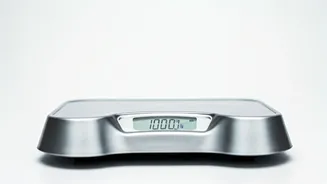Body's Cooling System
Your body temperature rises significantly during exercise as it works hard to move your muscles. After you stop working out, your body begins its natural
cooling process. A hot shower, however, interferes with this process. It can lead to further elevation in body temperature, making it difficult for your body to return to its normal state. This interference slows down recovery and can cause feelings of discomfort, such as dizziness, or even nausea, especially if you're already dehydrated. Therefore, it’s important to let your body cool down naturally after exercising, and avoid anything that will keep the temperature up.
Inflammation and Muscle Soreness
Exercise leads to micro-tears in your muscle fibers, which is a normal response to physical activity. These micro-tears trigger inflammation, which is the body's way of repairing and rebuilding those fibers. Taking a hot shower right after a workout can increase inflammation, potentially intensifying muscle soreness. When hot water hits your skin, blood vessels dilate, which can exacerbate inflammation, leading to greater discomfort. Conversely, a cold shower or lukewarm water is often recommended to help reduce inflammation and soothe muscles. Understanding the impact of heat on your recovery can help you make better decisions for your body.
Dehydration and Hydration
Working out can cause you to lose a lot of fluids through sweat. It's crucial to rehydrate after exercising, but a hot shower can work against your efforts. The heat from the shower can further dehydrate your body, which can compromise performance and recovery. Dehydration can lead to headaches, fatigue, and muscle cramps, all of which hinder your body’s ability to recover efficiently. Drinking plenty of water after your workout is important and so is choosing the temperature of your shower wisely. Consider starting with a slightly cooler shower to help with hydration and recovery.
Impact on Skin
A hot shower after a workout can also impact your skin. It can strip your skin of its natural oils, leading to dryness, itching, and potential irritation. Your skin is already under stress after a workout because of sweat and the friction from your clothes. A hot shower can worsen this, which can cause the protective barrier of your skin to be damaged. This is especially true if you have sensitive skin. Instead of a hot shower, consider opting for a lukewarm shower to help cleanse without stripping essential moisture from your skin. Using a gentle, hydrating body wash can also help keep your skin healthy and happy after a workout.
Alternatives for Hygiene
If you want to freshen up after your workout, there are alternatives to a hot shower that are more beneficial for your body. A lukewarm shower is a good choice, as it can help rinse off sweat without over-drying your skin. Another option is a cold shower, which can help reduce muscle soreness and inflammation. If a full shower isn't an option right away, using a damp cloth to wipe down areas with excessive sweat, such as underarms and groin areas, can provide immediate relief. Choosing the right methods of hygiene is important for not only cleanliness, but also for helping your body to recover faster.
Best Practices for Recovery
To best support your recovery after a workout, think beyond just the shower temperature. Prioritize rehydration by drinking water or an electrolyte beverage to replenish lost fluids. Eating a balanced meal or snack within an hour of your workout provides your body with the nutrients it needs to repair and rebuild muscle tissue. Getting enough sleep is also essential, as this is when your body does most of its repairing and restoring. Incorporate gentle stretching or foam rolling to reduce muscle tightness and improve flexibility. By combining these practices with the right shower temperature, you can optimize your recovery process and improve your overall fitness.












